'Enzymes that quickly break down plastics' are developed using machine learning models

Plastic is a synthetic resin made from petroleum as a raw material, and is used in various fields such as industrial products and packaging due to its strong resistance to water and resistance to corrosion, but it has an impact on the environment because it is not easily decomposed. It's a problem. To solve the problem of plastic waste, a research team at the University of Texas at Austin used machine learning to create 'an enzyme that breaks down plastic, which would otherwise take centuries, in hours or days.'
Machine learning-aided engineering of hydrolases for PET depolymerization | Nature
Plastic-eating Enzyme Could Eliminate Billions of Tons of Landfill Waste --UT News
https://news.utexas.edu/2022/04/27/plastic-eating-enzyme-could-eliminate-billions-of-tons-of-landfill-waste/
On YouTube, a video explaining the 'enzyme that quickly decomposes plastic' developed by the research team is posted.
Plastic-eating Enzyme Could Eliminate Billions of Tons of Landfill Waste-YouTube
Plastics make up about 12% of the world's waste, and soil and ocean pollution from billions of tons of plastic waste discarded in landfills and the natural environment is a major problem.

Since it takes hundreds of years to decompose plastic, the development of technology to decompose plastic quickly has become an important issue in stopping environmental pollution.

So

The enzyme developed by the research team quickly decomposes the

When this enzyme is used, the following plastics ...

The research team claims that it will break down in just 48 hours.
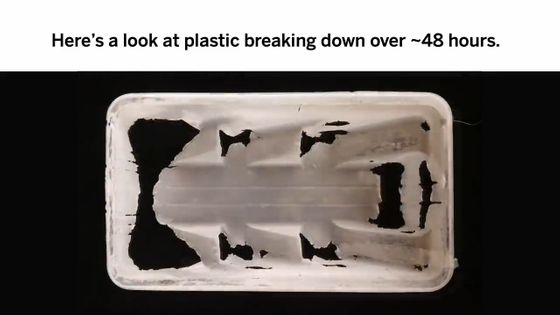
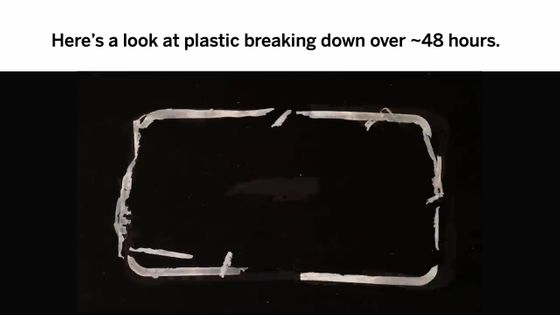
In developing a new enzyme, the research team generated a mutation in a natural enzyme called
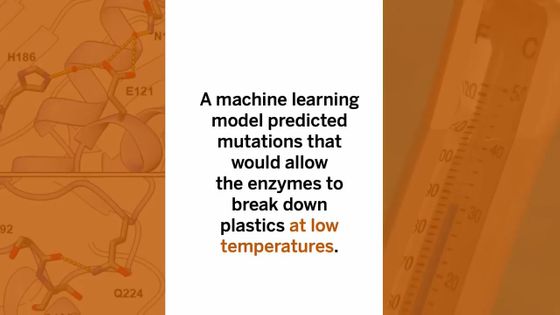
The new enzyme designed based on the prediction of the machine learning model is named 'FAST-PETase (functional, active, stable and tolerant PETase)', and the research team We experimented with the effects of FAST-PETase on 51 types of plastic containers, 5 types of fibers, and PET bottles.
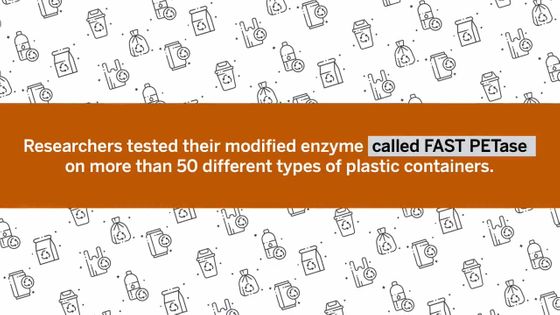
As a result, it was demonstrated that FAST-PETase can decompose plastic in just a few days. Also, unlike various industrial processes that recycle plastics, FAST-PETase works at a fairly low temperature of less than 50 degrees Celsius and with less energy.
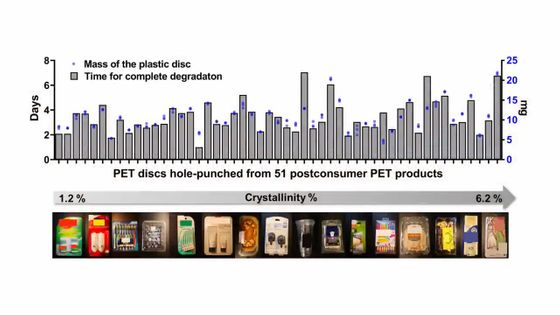
The research team plans to work on scaling up enzyme production for various applications in the future, and has applied for a patent for the technology. Focusing not only on the decomposition of plastics in landfills, but also on the decomposition of plastics discarded in the natural environment, the research team is considering several methods.
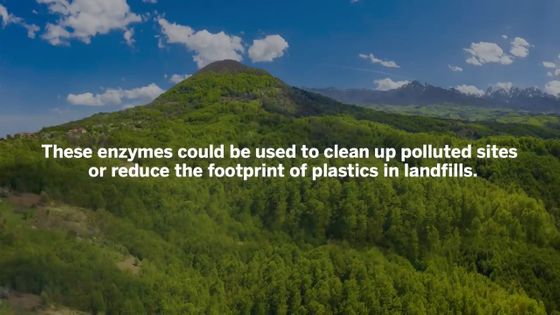
'This study underscores the power of fusion of different disciplines, such as synthetic biology, chemical engineering, and artificial intelligence,' said Andrew Ellington, a professor of molecular biology who was responsible for developing machine learning models. 'The possibilities of taking advantage of this state-of-the-art recycling process are endless, regardless of industry. Companies in all fields, not just the waste disposal industry, take the lead in recycling their products. It offers an opportunity. Through these more sustainable enzyme approaches, we can begin to envision a true recycling plastic economy. '
Related Posts:







